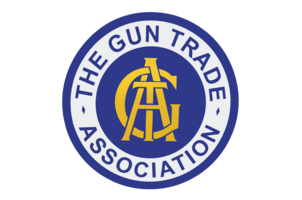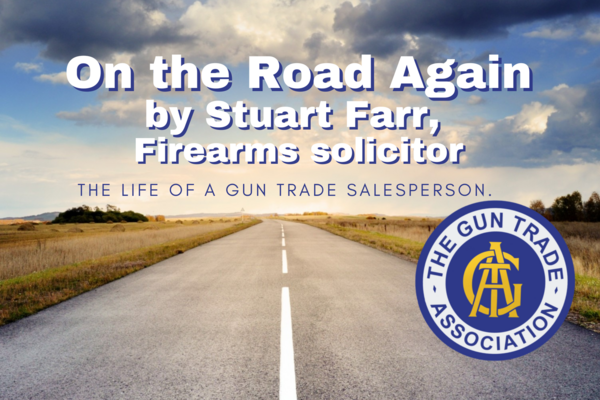I can well imagine that life on the road for any gun trade salesperson will have its “ups” and “downs”.
On the “up” side, there is always the opportunity to meet interesting and like-minded people in the trade. Indeed, after practically two years of only virtual contact via phone or computer, it must feel good to get out again and be able to shake hands and enjoy a brew with people. And let’s face it, life during those lockdown days was pretty tough. Sales targets were practically thrown out of the window, while the doors of bricks and mortar retailers were forced shut with businesses grinding to a trickle.
The “down” side, on the other hand, paints an image of a potentially lonely existence for anyone needing to travel the length and breadth of the country between appointments. With companionship supplied by the Sat Nav (“perform a U-turn where possible”), the mobile phone (“when will you be home?”), and what’s left of the (better) BBC Radio 2 DJs, it is easy to contemplate the temporary excitement that a brief stop-off at Tebay services (as seen on TV) may provide.
Then, of course, there is the security issue. Gun traders cannot simply meander about in a carefree manner. Their cargo requires care and responsibility. It is not the sort of stuff which can be allowed to fall into the wrong hands. Hence, a degree of advanced planning is needed.
The existing guidance in relation to firearms licensing, confirms that anyone transporting firearms or ammunition as part of the ordinary business of an authorised registered firearms dealer should always carry a copy of a letter of authority, together with a copy of the dealer’s certificate of registration. While these do not, of themselves, have legal status, a person (such as a salesperson) acting as a dealer’s “servant” (see section 8 Firearms Act 1968) would always be wise to check for these before travelling away. Periodically making sure these documents are refreshed or updated would also be sensible.
On other practical levels, hotels are an obvious place for the planning process to continue. The hotel sector has been hit hard too. Previously, skilled, experienced and trustworthy staff were “let go”. Nowadays, many new staff recruited to fill the sector’s labour shortage hold a training certificate on which the ink is barely dry. Mothballed hotel premises have suffered from a lack of updating, repair or maintenance. Safety and security systems have naturally suffered as a consequence. All these aspects require some thought if you are planning on making an overnight stay anywhere.
There are precious few sources to which to turn for guidance. The Firearms Security Handbook was last updated on 20 January 2021. Personally, however, I have always viewed this publication as a starting point only, principally because in certain areas it lacks detail which could otherwise make it helpful and meaningful. As it stands, the Handbook leaves much to individual responsibility and discretion. Taking firearms on a journey away is a case in point.
The guidance suggests:
“Obtain[ing] accommodation which already offers secure facilities”.
- What is meant by “secure” in this context is not explained, so it is essential to check ahead yourself. Enquire precisely how your preferred hotel provides and, importantly, manages its security for this purpose. It is also worthwhile asking for confirmation regarding their insurance coverage, just in case the worse happens as a result of theft, loss or damage.
“Separate and retain possession of integral parts of the firearm (fore-end of a shotgun, bolt of a rifle etc)”
- Fine, I suppose, provided you don’t mind carrying a bag full of fore-ends and a selection of key components around the hotel with you? But what about items which cannot be dismantled quite so easily without, say, specialist tools or know-how?
“Utilising portable security devices; security cords etc”
- In theory, one can see the sense behind this, but it seems to assume that any typical hotel room has something adequately robust which will provide a secure fastening for items in the first place. How many hotels have replaced all their heavy radiators with something more modern and energy efficient, for example?
That’s about all you will find, I’m afraid. Which is a shame because the guidance really does seem to be stuck in the past. It fails either to contemplate or offer sensible suggestions which reflect modern-day business travel. It is addressed only to the traveller. It affords no help or guidance to those hotel businesses wishing to encourage paying customers by offering a secure storage facility. I cannot imagine any hotel wishing to invite criticism (or, worse still, prosecution) because of an honest misinterpretation of the requirements of the gun trade or the enforcement authorities.
Business travellers have new risks to contemplate before making their sales trips. More regular and prolonged stops for electric vehicle charging, for instance. The predominance of (insecure) online booking systems encourages you to inform the hotel of any “special requirements”. Or, unadvertised decreased levels of night-time hotel security necessitated by cost cutting or lack of resources. All these would benefit from better guidance, to enable the busy salesperson to devise a functional travel plan and make informed decisions more quickly. Hopefully, in time, these things will come to fruition.
Stuart Farr is an advisory member of the Gun Trade Association and a partner in the firm of Taylors solicitors. He specialises in helping members of the gun trade across the UK to resolve their problems.
For more trade information and benefits join the GTA at https://www.gtaltd.co.uk




